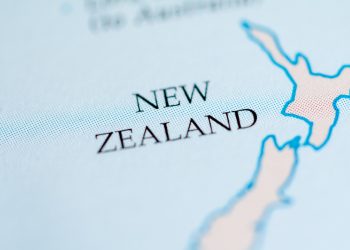Between 40 and 1400 tonnes of fuel oil were leaked into the ocean
A couple of years ago, the writer Nassim Nicholas Taleb invented a new metaphor which describes what he calls low probability, high impact events — the Black Swan. For centuries this creature was not thought to exist, but then the discovery of a single animal turned this assumption on its head. What Taleb is getting at is the way in which our ideas about the way the world works can be totally shifted by a single, shocking event. Once it happens, the author notes, humans are pretty good at concocting explanations for why it did, to make the thing seem more normal, to allow us to continue on as before.

The sinking of the ‘unsinkable’ Titanic: a classic black swan. The BP oil disaster in the Gulf of Mexico, another. Exxon Valdez? Sure. This week’s grounding of a tanker carrying fuel oil through one of the most beautiful marine environments on earth? Just the latest.
As the 21st century evolves around us, one thing is clear. When it comes to mankind’s thirst for energy we are entering uncharted waters, and the old assumptions are no longer cutting it. Major spills don’t happen in rich countries with tough regulations, like the U.S., like Britain, like New Zealand. Wrong. Oil companies are getting better at avoiding major spills and at dealing with them when the worst happens. Wrong. Existing regulations are enough to prevent this kind of thing happening in the future. Wrong.
What we’re really seeing is an industry that is becoming increasingly desperate as the easy oil runs out and the good times come to an end. Wells are deeper than ever before. More contractors are involved in rigs, the all looking to shave precious dollars from their costs. Down the supply chain, shipping companies are operating under more pressure, more stress, more anxiety.
And so we come to a coral reef near the crystalline beaches of Mount Maunganui in New Zealand, where right now anywhere between 40 and 1400 tonnes of fuel oil is leaking into the ocean, too late for anything meaningful to be done. Ignore people who say that spill response technology is better than ever — no more than 10 percent of any spill will ever be removed. The best we can hope for is that the waves will chop up the surface of the chemicals and allow for faster absorption into the sea.
And for what? This oil was destined to lubricate cars, SUVs, motor yachts. Now it’s lubricating the windpipes of sea birds, dolphins and whales. Rather than use an event like this one — or any of the other oil disasters that humanity has inflicted on the earth recently — to stop and think, we concoct explanations for why it happened. It’s a unique case. It can never happen again. This was a one-off, an outlier.
The same governments that express their shock when events like this happen are the same who refuse to consider them as signals to change course. The industry will act humble for a month or two, accept some responsibility, put human sounding statements on websites. Politicians will express their outrage and determination to ensure this never happens again. Then, before the crocodile tears have dried, they’ll be bowing to oil industry lobbyists, terrified of big oil’s power over their political futures.
There must be a better way. As hundreds gather in major cities around the  U.S. to protest the way corporate greed has contaminated our political system, we must use this momentum to change things for good. Our governments are there to protect us from catastrophic events, not to explain them away with vague statements and warm condolences before putting greed above science again, and again. We must have faith in humanity to see the looming environmental crisis we’re headed for, and do something about it.
U.S. to protest the way corporate greed has contaminated our political system, we must use this momentum to change things for good. Our governments are there to protect us from catastrophic events, not to explain them away with vague statements and warm condolences before putting greed above science again, and again. We must have faith in humanity to see the looming environmental crisis we’re headed for, and do something about it.
It’s time to tell those in power that we, the people, see which way the wind is blowing. And like the black swan on the eve of winter, it’s time to change course.
Source: Huffington Post


























































